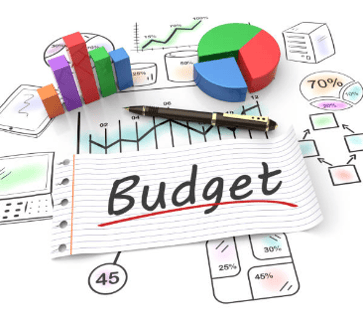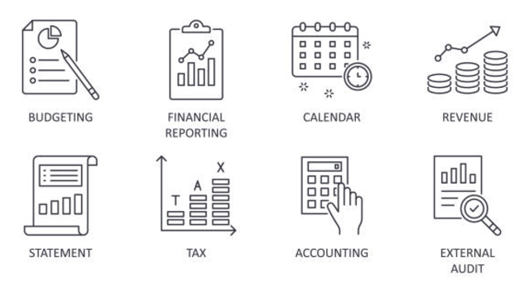How to Create a Budget That Actually Works
WEALTH BUILDING
5 min read


Understanding the Importance of Budgeting
Budgeting is a critical component of personal finance management that enables individuals to gain control over their financial circumstances. At its core, budgeting is the process of creating a plan for your money, allowing you to allocate resources effectively to meet both short-term and long-term goals. One of the primary benefits of having a budget is that it fosters greater financial awareness. By tracking your income and expenses, you can identify spending patterns and areas where adjustments may be necessary. This awareness not only helps prevent overspending but also encourages more informed financial decision-making.
Budgeting also plays a pivotal role in achieving savings goals. Whether you are saving for a specific purpose, such as a home, a retirement fund, or an emergency fund, a well-structured budget provides a clear path toward those objectives. Regularly setting aside funds in alignment with your budget can significantly enhance your ability to reach these goals more swiftly. The discipline that budgeting instills not only supports savings accumulation but also sets a foundation for sustained financial health.
Another substantial advantage of developing a budget is the reduction of financial stress. Uncertainty around finances can lead to anxiety and hinder your overall quality of life. A proactive budgeting strategy alleviates these worries by empowering you with the knowledge of your financial standing, enabling you to address potential challenges before they escalate. Additionally, aligning budgeting efforts with personal financial goals can serve as a motivating factor. Setting realistic objectives, celebrating small victories, and periodically reviewing your budget can further reinforce your commitment to stick with it over time. Ultimately, understanding the importance of budgeting lays a robust foundation that promotes long-term financial stability and wellness.
Steps to Create a Personal Budget
The first step in establishing a budget is to assess your total income. Begin by documenting all sources of income, including salaries, freelance jobs, and any passive income streams. This figure will serve as the foundation of your budget.
Next, it is crucial to list all expenses. Categorize them into fixed expenses, such as rent or mortgage, utilities, and loan payments, and variable expenses, including groceries, entertainment, and dining out. This comprehensive list will provide a clear picture of where your money is going each month, helping to identify areas for potential savings.
Once your expenses are documented, it’s important to distinguish between needs and wants. Needs are essentials—such as food, housing, and transportation—while wants are non-essentials like luxury items or entertainment options. Understanding this distinction will aid in making informed decisions about spending and prioritizing necessary expenditures.
Setting financial goals is another vital step in the budgeting process. Consider both short-term objectives, such as saving for a vacation, and long-term goals, such as retirement savings. Clearly defined goals will provide motivation and guide your spending choices throughout the budgeting period.
The next step is to calculate your budget. Subtract your total expenses from your total income to determine if you have a surplus or deficit. A surplus indicates financial flexibility, while a deficit signals the need to re-evaluate expenses. Utilize budgeting tools or apps to facilitate this process, as they can automate calculations and provide insights into your spending habits.
Incorporating these elements will help create a personal budget that is tailored to your specific financial situation and goals, ultimately leading to more informed financial decisions.
Implementing and Adjusting Your Budget
Once you have established your budget, the next critical phase is its implementation. Effective execution of a budget involves tracking your expenses meticulously. Utilizing tools such as budgeting apps, spreadsheets, or even simple pen and paper can facilitate the monitoring of your financial activities. Regularly recording your expenditures not only helps in staying accountable but also provides a clear picture of where your money goes. This insight is key to understanding spending patterns and identifying areas where adjustments may be necessary.
Staying disciplined can be challenging, especially in the face of impulse purchases and lifestyle inflation. One strategy to maintain discipline is to establish specific spending categories. For example, designated allocations for groceries, entertainment, and savings can help avoid overspending in one area at the expense of another. Additionally, creating a system of rewards for adhering to the budget can serve as additional motivation.
It is essential to review your budget periodically, preferably on a monthly or quarterly basis. Financial situations and goals can change due to various factors, such as income fluctuations or changes in priorities. Adjusting your budget to reflect these changes is necessary for its continued effectiveness. During these reviews, reflect on overspending in particular categories and try to understand the underlying reasons. This evaluation process not only helps in fine-tuning your budget but also aids in enhancing financial literacy.
Unexpected expenses, such as medical emergencies or car repairs, can pose significant challenges to sticking to a budget. To prepare for such unforeseen circumstances, it is advisable to allocate a portion of your budget to an emergency fund. Having this financial cushion allows you to indulge in necessary expenditures without derailing your overall budget. By adopting these strategies for tracking expenses, maintaining discipline, adjusting as necessary, and preparing for surprises, you can achieve a budget that is both realistic and effective over time.
Maintaining Long-Term Financial Health
Creating a budget is not a one-time event; rather, it is an ongoing process that requires consistent attention and adjustment. To foster long-term financial health, individuals must remain engaged with their budgeting practices and adapt them as their financial circumstances evolve. Establishing a routine of regular financial check-ups is essential in this journey. These reviews allow individuals to assess their current financial situation, evaluate if their budget is meeting their needs, and identify any necessary changes.
To maintain motivation in budgeting, consider setting new financial goals after achieving initial targets. Short-term objectives, like saving for a vacation or paying off a small debt, can provide immediate satisfaction and encourage continued adherence to budgeting practices. Once these goals are met, individuals can progress to more significant objectives such as establishing an emergency fund or investing for retirement. Each milestone achieved reinforces the positive effects of disciplined budgeting, paving the way for enhanced financial stability.
Incorporating technology can further streamline and encourage effective budgeting habits. Various budgeting apps and online tools offer features for tracking expenses, setting financial goals, and even providing reminders for budget reviews. Utilizing these resources enhances visibility into one's financial habits and supports accountability. These tools can motivate individuals to remain consistent with their budgeting efforts by illustrating progress toward financial goals.
Effective budgeting not only leads to increased savings but also contributes to a secure financial future. By viewing budgeting as a dynamic process rather than a static one, individuals can cultivate a mindset that welcomes change and improvement. Regularly engaging with budgeting practices ensures a continual alignment with personal financial goals, resulting in better long-term financial health.








